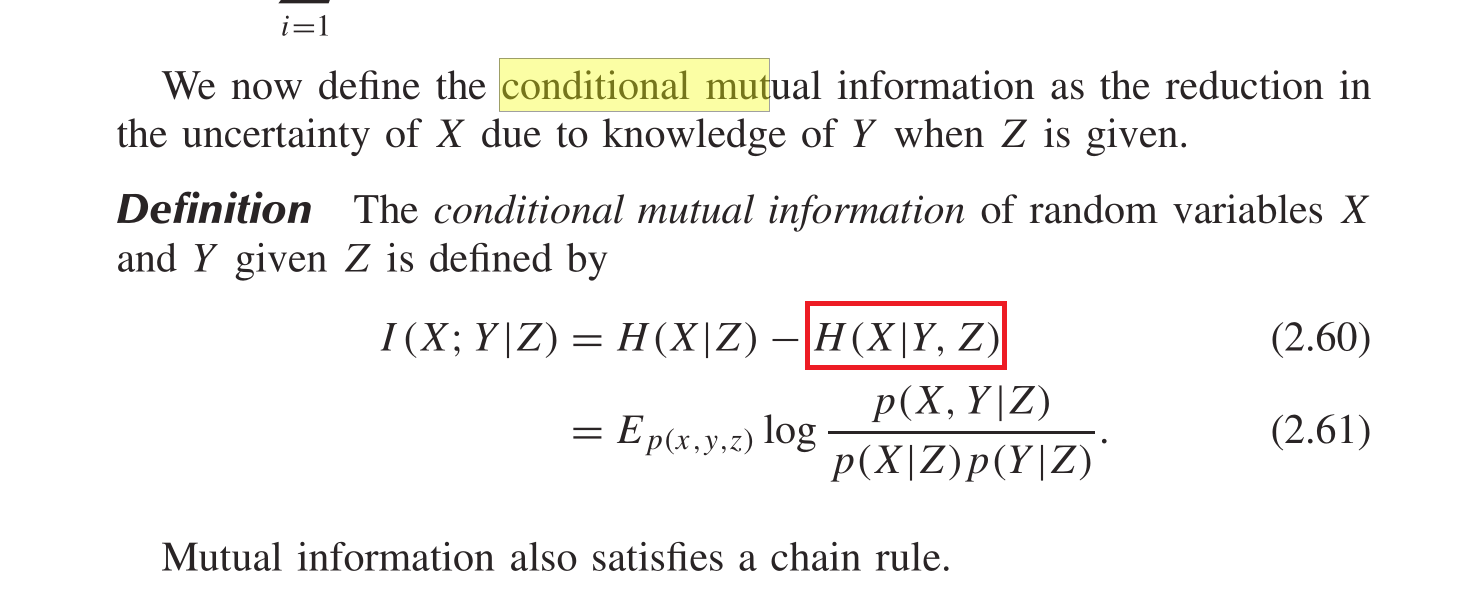I'm constantly confused by the ambiguous notation when discussing Entropy (H) and Mutual Information (I). For example, here's a formula from "Elements of Information Theory":

$$ I(X;Y|Z) = H(X|Z) − H(X|Y,Z) $$
In this, $H(X|Y,Z)$ can mean two things:
a) Entropy of $X$ given $(Y,Z)$ or
b) Entropy of $(X|Y)$ and $Z$
These two are completely different things!
Which of these two is correct? Logically I can see that it must be a) and not b), but this is only because of intuition. In many other formulas elsewhere, the formula is ambiguous.
Is there some rule to tell exactly what it means?
